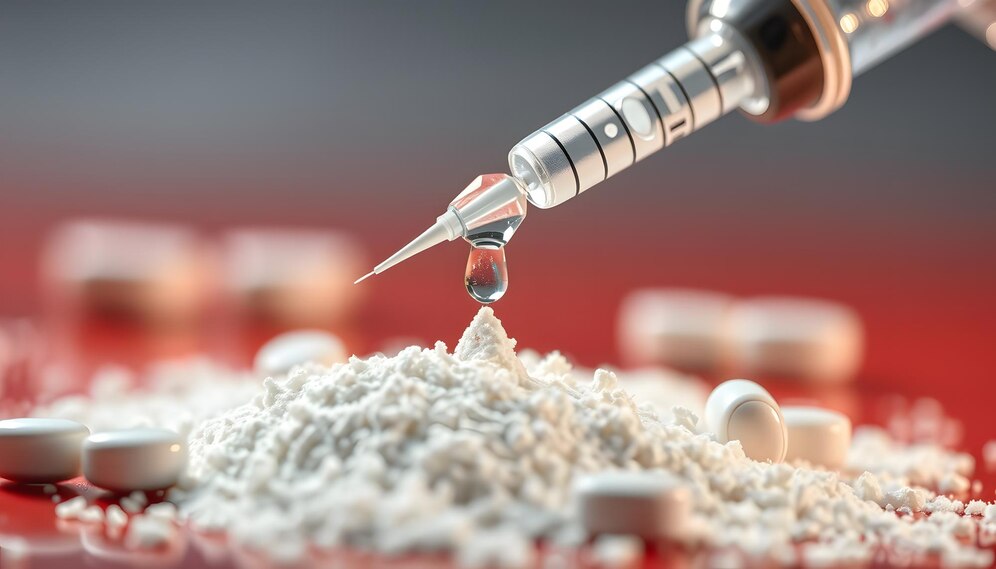Understanding how long heroin stays in the body is crucial for both medical treatment and personal awareness. Heroin, a highly addictive opioid, can have varying durations in different parts of the body.
So how long does heroin stay in the body in reality? According to a study published in the Journal of Analytical Toxicology, heroin and its metabolites can be detected in urine for up to 3 days after the last use. Blood tests can reveal its presence for approximately 12 hours, while traces may remain in hair follicles for up to 90 days.
Knowing these timelines can help make informed decisions about health and treatment options.
What Exactly is Heroin from a Medical Aspect
We advise you to learn about this drug in detail before you understand its mechanism of stay or how long does heroin stay in the human body. Heroin is a drug created from morphine, which comes from the seed pods of certain poppy plants. Medically, it acts as a powerful painkiller and can quickly deliver a strong feeling of pleasure or a “high.”
Doctors rarely use it due to its highly addictive nature and dangerous effects. Heroin changes into morphine when it enters the brain, making it work rapidly. However, it is illegal and unsafe for unmanaged use, mainly because it is very addictive and can cause serious health issues.
Now move on to the effects that it can have on the human mind and body, and then get to know how long does heroin stays in the body for; this will help you determine the longer it stays, the more dangerous it is.
What Effects Heroin Can Have on the Human Body and Brain
Heroin deeply affects both the body and brain, often with harmful results. Shortly after use, it can cause a rush of pleasure, followed by drowsiness and mental fog. Over time, heroin can severely damage important organs like the liver and kidneys. The brain starts to rely heavily on the drug, leading to addiction. This dependency can result in needing more heroin to feel normal, making quitting extremely difficult. Heroin also increases the risk of infectious diseases since many users inject it, often with shared needles.
How Long Does Heroin Stay in the Body System?
Heroin can be detected in the body through various types of drug tests. Here are some common sample types and their detection times:
- Urine Test:
Mostly the main test type is of urine in this drug detection. So how long does heroin stay in urine? Heroin can be found in urine typically for up to 3 days after the last use. This test is very common because it is easy to perform and gives results quickly. However, the precise detection time can vary based on the frequency and amount of use.
- Blood Test:
Heroin is usually detectable in blood for approximately 6 to 12 hours after use. This method is less common for routine screening and is typically used in medical emergencies because it shows very recent use of the drug.
- Saliva Test:
So how long does heroin stay in the body if you go for a saliva test? Heroin can be detected in saliva for about 24 to 48 hours. This test is easy and non-invasive, making it a good choice for quick screenings. However, it is less reliable than urine or blood tests for long-term detection.
- Hair Follicle Test:
Heroin can be detected in hair follicles for up to 90 days. This test is very effective for showing long-term drug use history. However, it does not show recent use and can be more expensive and time-consuming to perform.
- Sweat Test:
Heroin can be found in sweat for about 1 to 2 weeks using specialized sweat patches. This method is not as standard as others, but it can be helpful in monitoring continuous drug use over a more extended period.
So now you have a better idea of how long does heroin stay in the body system. Basically, each test sample type has its own advantages and limitations regarding the detection time frame, and the choice of test can depend on the specific requirements of the situation.
Get Help from Experts
Most people want to get rid of this addiction after knowing exactly how long does heroin stay in the body and its after-effects on their mind and body. In this case, getting professional behavioral health help can minimize the damage.
According to a study published in the Journal of Analytical Toxicology, there is a significant relationship between heroin addiction and depression, with around 24% of new entrants to treatment services for opioid dependency showing evidence of depression. Knowing this, it’s critical to seek professional help to manage both the addiction and its associated mental health issues.

